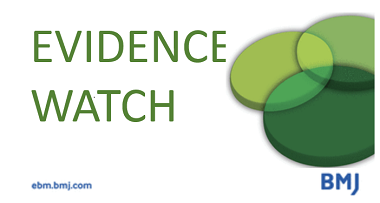High baseline adherence rates for guidelines recommendations means that a clinical decision support system makes only a small difference in clinical outcomes for atrial fibrillation patients.
Carl Heneghan

The evidence for the association of atrial fibrillation with stroke risk is clear. However, there remain persistent levels of under treatment in clinical practice.
Clinical decision support tool (CDS) integrated into the electronic health record offer one way to improve uptake of guidelines that recommend anticoagulation in patients with atrial fibrillation and therefore reduce stroke.
A recent cluster-randomized trial of 43 primary care clinics in Sweden randomized practices to alert clinicians for patients with AF and at increased risk for thromboembolism and to recommend therapy according to the CHA2DS2-VASc score.
After 1 year there was a small but significant increase in guideline adherence in the CDS practices (73.0% versus 71.2% p = 0.013). However, there was no difference in the incidence of stroke, transient ischemic attack, or systemic thromboembolism in the two groups. The CDS group did have a lower incidence of significant bleeding, 12 per 1,000 (95% CI 9-15) patients in CDS practices compared to 16 (95% CI 12-20) per 1,000 patients in control practices (p = 0.04).
Having high baseline adherence rates for guidelines recommendations at the outset (in this case 70% adherence to the recommendation for anticoagulation therapy) means that a clinical decision support system makes only a small difference to adhering to guideline recommendations, it seemingly has more impact on safety.
I call this the evidence optimisation gap: the level at which it becomes difficult to attain further benefits because clinicians, patients or the system make it difficult to achieve perfect optimisation, or patient values mean perfect levels of adherence to treatment recommendations misses the point.
Reference:
A clinical decision support tool for improving adherence to guidelines on anticoagulant therapy in patients with atrial fibrillation at risk of stroke: A cluster-randomized trial in a Swedish primary care setting (the CDS-AF study). Karlsson L.O. et al. 2018. PLoS Medicine, 15(3), e1002528.

BMJ Evidence-Based Medicine – original evidence-based research, insights and opinion
Read more about BMJ EBM content in the Welcome to BMJ Evidence-Based Medicine Editorial.
Competing interests
Carl has received expenses and fees for his media work including BBC Inside Health. He holds grant funding from the NIHR, the NIHR School of Primary Care Research, The NIHR Oxford BRC and the WHO. He has also received income from the publication of a series of toolkit books. CEBM jointly runs the EvidenceLive Conference with the BMJ and the Overdiagnosis Conference with some international partners which are based on a non-profit model.